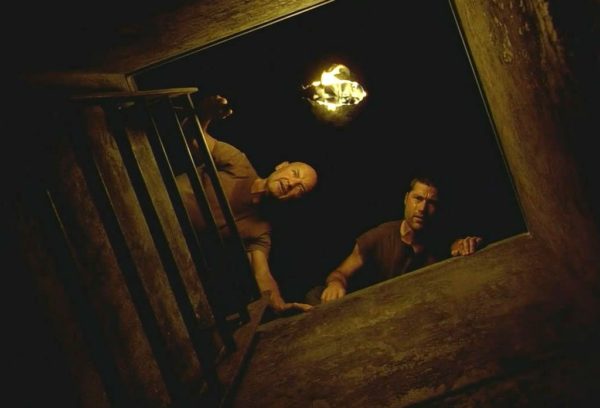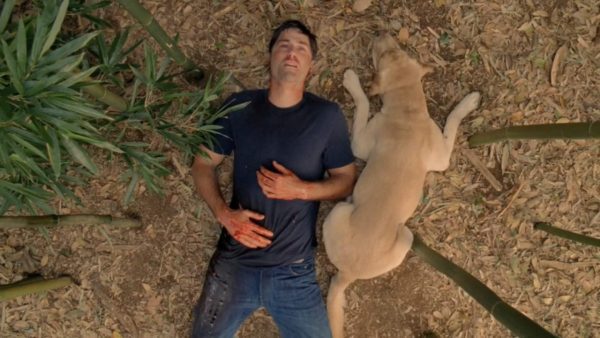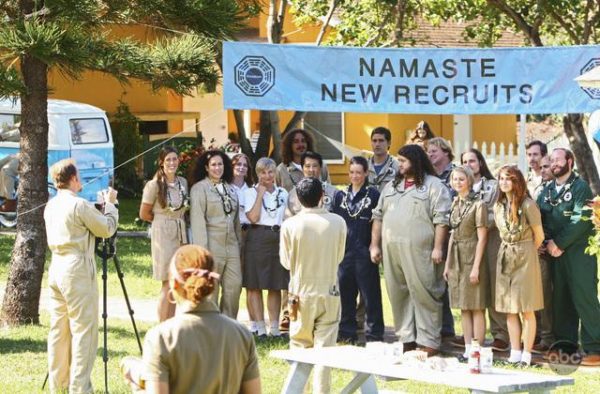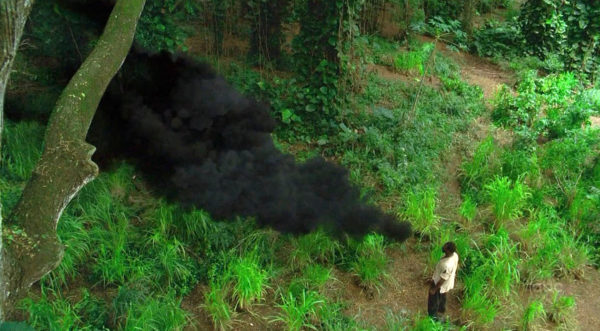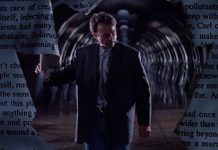Television shows come with mature content warnings all the time, but that’s mostly because of the sex or violence. Sometimes — rarely, actually, probably never — it’s because of philosophical sophistication. With that in mind, I think Lost should have always been aired with this disclaimer preceding it: “Warning: The following program is an art film masquerading as a science fiction show on television that utilizes philosophy and may not be suitable for some viewers.” That would have saved the makers of Lost a lot of grief.
This is not an aspersion on the intelligence of the viewers but rather their expectations. When you’re committing to a six-year-long story, it’s nice to know what you’re entering into. And it isn’t meant to downplay the adventure side of the story — in that area, it’s one of the all-time best. But in context of a television series, especially one that featured monsters and time travel and other weirdness, it’s not unreasonable to expect that you’re watching a science fiction show that will end like a science fiction show. When some people watched the final episode and found themselves faced with a drama, a puzzle, a meditation, and further questions, they left unsatisfied by what they saw.
But my view is that if you approach a rewatch with the right attitude and preparation, with a shift in understanding what you are actually watching, you will have the kind of transformative intellectual and artistic experience that the show advocates for.
In its simplest terms Lost follows the survivors of a plane crash as they fight to survive on a mysterious island, but that hardly captures it. The series was never content to limit itself to one simple story with one basic premise, and each successive season widens the scope and adjusts the focus, offering different vantage points for the wider epic and tantalizing mysteries as the backdrop, with a huge cast of characters as the constants that anchor the swirling action.
But the way Lost tackles its mysteries was not like any other show at the time it aired, and though there have been plenty of imitators since its final episode, few if any have embraced the more controversial aspects of it. Maybe this is just as well since the way Lost handled its central mysteries became a point of contention for some fans of the show after the finale, alienating plenty of folks and even enraging some.
Sometime before the finale co-creator Carlton Cuse told Wired Magazine, “There is not a unified field theory for Lost, nor do we think there should be, because philosophically we don’t buy into that as a conceit.” He added, “The great mysteries of life fundamentally can’t be addressed.”
And there it is. Have you ever thought about the deaths of people you personally knew as unfulfilling ends for them? Have you ever had questions about aspects of your family history that you will never find answers to? Have you ever been swept up in the moment so that you forgot to address the minutiae that caused you to get swept up? That’s all what Lost is partly about.
What this boils down to is that the reasons the mysteries exist and what the mysteries lead to are as important if not more so than the solution to any given mystery. What Lost demands of the viewer is not just the sort of brainwork that is utilized to solve puzzles, but the sort that is required to tell stories. Lost asks an audience to be ready to fill in its own blanks.
In media terms, Lost had few precedents at the time it aired but those that did exist were vital cousins. Cuse and fellow executive producer Damon Lindelof were always upfront about the influence of Star Wars, as well as Stephen King, but I think these are window dressing and there are far deeper narrative kin to be talked about. Of course there is also Charles Dickens, who is referenced in the show and whose dramatic structure is heavily utilized, but none of these generally acknowledged influences speak to some of the more controversial and curious aspects of Lost.
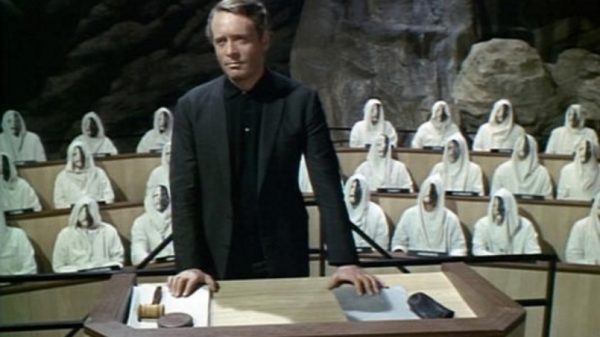
For instance, Patrick McGoohan’s 1960s series The Prisoner is its spiritual grandfather. A show that embraced the popular spy genre of the time and that demanded answers to its cryptic presentation, The Prisoner discarded them in favor of thematic and personal truths realized through metaphor, with a finale that raised many more questions in regard to its themes than it provided answers about its plot.
Equally related is 2001: A Space Odyssey, a science fiction film that routinely suggested the narrative details were not as important as what they represented in terms of bigger ideas, and La Jetee, a mysterious short French film from the 1960s about mystical time travel and the irreversible nature of fate.
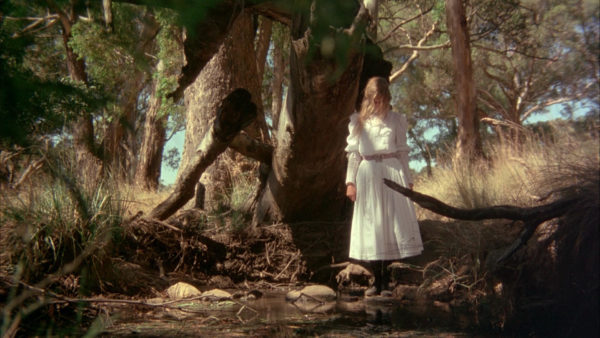
One of the show’s strongest spiritual predecessors is Peter Weir’s remarkable film Picnic At Hanging Rock, which on the surface examined the disappearance of Australian schoolgirls but refused to solve that mystery and instead unfolded as a series of tantalizing allusions pulling from art and mythology, providing the tools for speculation instead. I have no idea of the series remake was as masterful as the Weir’s version, but it was an unnecessary production regardless.
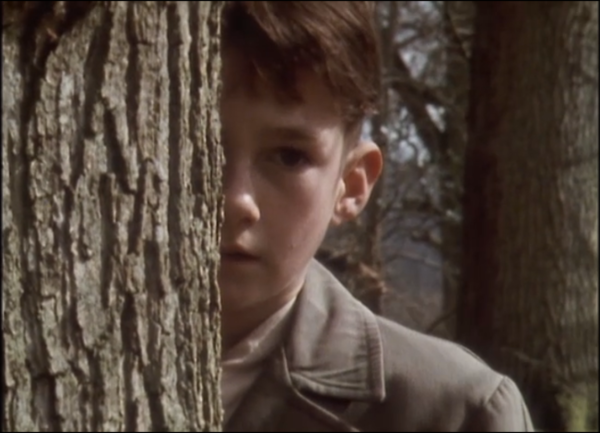
In the world of television, it would also be wrong to overlook the work of British teleplay author Dennis Potter for influence. The Singing Detective used genre fiction as the vehicle for psychological and thematic revelations, including the mixing of story reality, time frames and fantasy sequences outside the narrative in order to create a storytelling experience that revealed the lives of characters even as it refused to solve the actual linear mystery it began with — preferring to mix up the author’s personal story with the detective story he wrote into something far more profound.
And it’s hard to dismiss influence from Russian filmmaker Andrei Tarvoksy, whose works portray intense spiritual longing and searches for meaning, often in cryptic terms that result in epiphanies that never fully explain themselves to the audience, but rather leave room for kinship. The decayed industrial ruins of Stalker seem obviously mirrored in Lost, as does the quest for the secrets of a physical location that the characters embark on. The exact circumstance of the Zone remains unexplained, as do the revelations that the seekers encounter. It is a film about a quest for faith and the characters experience in the Zone resembles nothing so much as a walkabout through the ravaged decay post-industrial landscape.
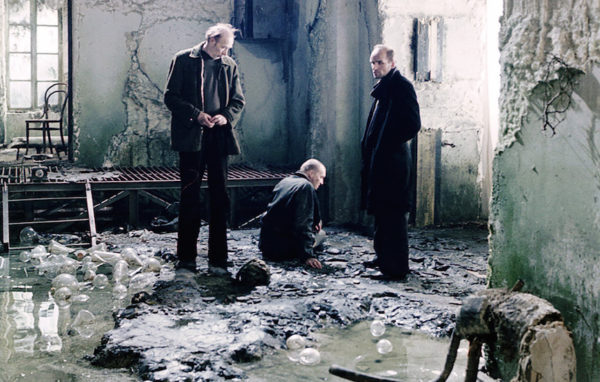
In Solaris, people from the character’s pasts visit them on an alien planet, the efforts of a single entity, while in The Sacrifice, spirituality and madness intertwine in the face of nuclear disaster, with the supernatural becoming a conduit to thematic debate between faith and reason as what will save mankind.
The screenplays of Charlie Kaufman also share a narrative kinship — Lost isn’t so much Star Trek as it is Synecdoche, New York.
One book that always comes to mind when I think about Lost is Stanislaw Lem’s The Chain of Chance. I have no idea if anyone having anything to do with Lost ever read it, but it wouldn’t surprise me if they did. Published in 1975, the book is a murder mystery in which the suspects and theories pile up, what becomes apparent is that there is no conspiracy at all, but a series of entirely random events all happened in such an order to cause the deaths being investigated and create the impression that they were the result of a cohesive plan.
You can counter that notion with G.K. Chesterton’s allegorical mystery novel from 1908, The Man Who Was Thursday, which takes an investigation into anarchist group and leads us to the idea that though to the human mind things may seem random, there is method behind the madness — there is, Chesterton suggests quite forwardly, a god behind the chaos. Chaos is anything but random.
Which brings us to what, more than any other, strikes me as the literary model for Lost — the Bible, with cryptic inclusions, vague explanations and important exclusions being at the center of the power of that epic, in which the wider story of a group is told through the experience of individual characters.
It’s not what is in the Bible that has made it flourish through the ages, but what is not. This aspect leaves so much of it up to interpretation, not just philosophically but in narrative terms as well. Lost understands this and looks to The Bible often for reference and theme. The two works even find parallels in terms of the Jewish Pseudoepigrapha, which offers entire narrative side roads of Biblical action, creating separate-but-related minutiae mythologies parallel to the broad, archetypal strokes of the Bible.
In Christianity, the equal would be the Apocryphal books of the New Testament that offer alternate vantage points with which to look at the life of Jesus Christ. Offering different takes on Jesus, Judas, Mary, and others, and giving different contexts for the lessons of Christ, these Apocryphal works function to disarm belief as a simple act, deconstructing the myths that Christians now accept as the truth into something more complicated, much as Lost did continually with its own mythology.
The final season, in particular, has always struck me as partly a meta-commentary on the concepts of narrative, a functioning apocrypha presented within the show itself. Rather than try to qualify the flash-sideways as an actual thing — the afterlife, a dream, purgatory, these seem too literal. I just see it as an alternate narrative, the authors showing that they don’t need a plane crash, they don’t need an island, to tell the stories of these characters with the themes they want to explore. It’s just a different way of looking at the characters and what they stand for.
Any given smaller story in Lost can easily function like a parable placed within the larger work. What important is the discussion the parable ignites. As with the Jewish rabbinical tradition, this is all meant to inspire study and debate. It’s not necessarily about whittling down one distinct answer, it’s about the ideas that come up during the ensuing debates. It’s about the questions. And it’s not enough to ponder what any given character in Lost does so much as why the character does it.
The Lost showrunners were probably less like rabbis and more like grad students having a late-night debate over some PBR and pot. They didn’t want to leave bystanders out of the conversation, though, and they peppered Lost with references that can be utilized to propel meaning if you care enough to look that closely. There’s a lot of Eastern mysticism, Buddhism and even Aboriginal mythology thrown in there, and that’s just the tip of the narrative iceberg.
Cuse and Lindelof are first and foremost philosophy geeks, with characters named after David Hume, Jean-Jacques Rousseau, and John Locke, among others. The show typically presents drama that inspired questions, and that advocated the act of asking questions as the most important action there is. A question is usually answered by a question, and always leads to more, and questions are what propels the drama, the action, the entire movement of humanity.
Science is also foremost in the disciplines Lost employs in the storytelling. At a certain point in the series, a running knowledge of physics is helpful — but not necessary — to relate the comings and goings of quantum particles in a metaphorical way to the movements of plot and character. Naming characters after famous scientists like Michael Faraday, Hermann Minkowski, and Stephen Hawking — and tying plots to their fields of research — only heighten this fact.
And putting all these references out there provide the audience with plenty of intellectual strands to follow. The makers of Lost wanted everyone to know where they got these concepts from — they were inclusive and through these references invited the audience to be a part of the debate.
That debate was the point more than any of the answers that were devised. No single solution was ever necessary. All answers were the appropriate answers.
You can enjoy Lost without embracing any of the academic undertones, but it’s a lot more enriching if you do, because these allow you to play the game that Lost lays out.
With all these pieces in place, Lost unfolds as a story of searching and the systems through which we conduct our personal quests. By presenting the foundations of truth and the myths required to uncover it, Lost empowers its audience to come to its own conclusions, as any other seeker of truth does through whatever method is chosen for that quest.
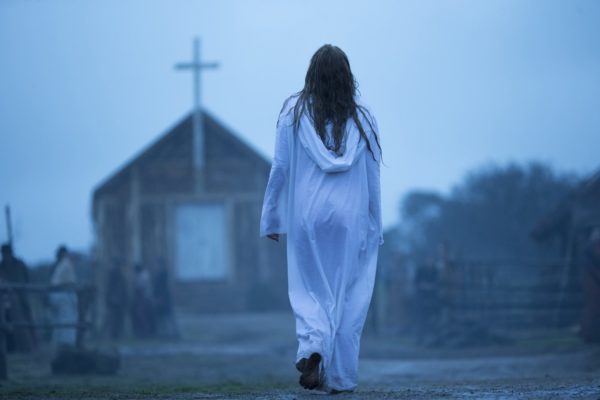
You can see many of the same themes in Lindelof’s follow-up series, The Leftovers, but at half the season count and a quarter of the episodes, it’s a more succinct rumination than Lost. It’s tighter, has fewer diversions, and avoided the blunders that drawn-out series runs rarely avoid. But I’d argue that it is Lost’s sprawl that makes it so great and so effective. It’s unwieldy, like reality itself.
If anything, to me at least, Lost is about the patterns — personal, societal, historical, scientific, mathematical — that preordain our destinies, as well as the personal experiences that shape any chance we might have of veering away from what is written. It’s the story of parents passing down their dysfunction first to their children and then to the world. It’s the story of how these personal patterns become wider-reaching cultural ones, and how we act on the accepted narratives of these cultural patterns. It is a story without beginning or end.
In that respect, Lost is a slice out of the very middle of the grand scheme of things rather than either end of — the part we live in right now, filled with the clutter humans bring to pure story of our world. It requires viewers to work their way through that mass of naturally-occurring red herrings to figure out what exactly matters in all this. Like life. Like history. Like religion.
More important than any of this is that Lost is about people, and that’s at the center of the show, from debut to finale. The most vigorous thread passing through the series belongs to that of the characters portrayed, bringing heady undertones and weird plotlines down to a human level of drama. The characters ground it and make it accessible. They give the tropes faces. Kind of like the Bible. And Great Expectations.
They also provide one of the most important exit points from all that came before Lost. The characters in Lost demand to control their own narratives, and they all come to the realization that this often means deciding how you die. How you die is so often how you are remembered. That’s what so many characters in the show — Charlie, Locke, Jack, Sayid, Rose, Sun and Jin, Eko — do. By choosing your own fate, you control your story.
That’s really the key. By choosing your own fate, you disrupt the absolutes. That’s what people are: x-factors that disrupt the absolutes. Anomalies in pre-destination. They make science seem fuzzy and challenge religious prescriptions and contradict philosophical conclusions. In other words, they complicate matters so thoroughly that they can make answers impossible to decipher.
And their actions create so many side roads that it’s impossible to follow them all. One moment in life is the result of innumerable actions coming together over a length of time. Deciphering those parts is a backward puzzle that we all play with history, biography, and just trying to figure out our own lives. And Lost is a television visualization of that process.
With so many parts to this puzzle, how could there ever be a unified field theory for Lost? And do we really want there to be? When so many other works of television fiction bring their narratives to tidy conclusions, I’m glad that Lost didn’t. That’s partly why we keep talking about it. The fact there is no unified field theory for it is exactly the thing that keeps it alive.



